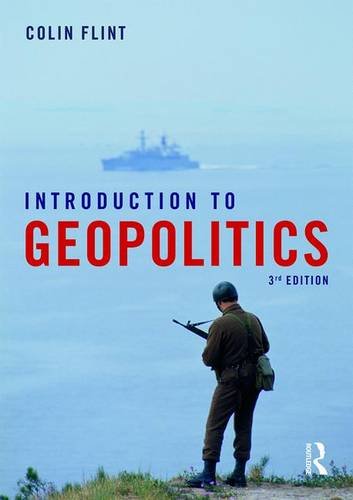

Most ebook files are in PDF format, so you can easily read them using various software such as Foxit Reader or directly on the Google Chrome browser.
Some ebook files are released by publishers in other formats such as .awz, .mobi, .epub, .fb2, etc. You may need to install specific software to read these formats on mobile/PC, such as Calibre.
Please read the tutorial at this link: https://ebookbell.com/faq
We offer FREE conversion to the popular formats you request; however, this may take some time. Therefore, right after payment, please email us, and we will try to provide the service as quickly as possible.
For some exceptional file formats or broken links (if any), please refrain from opening any disputes. Instead, email us first, and we will try to assist within a maximum of 6 hours.
EbookBell Team

4.1
60 reviewsThis new updated edition of Introduction to Geopolitics presents the overarching themes of geopolitical structures and agents in an engaging and accessible manner, which requires no previous knowledge of theory or current affairs.
Using new pertinent case studies and guided exercises the title explains the contemporary global power of the United States and the challenges it is facing, the persistence of nationalist conflicts, migration, cyberwar, terrorism, and environmental geopolitics. Case studies of the rise of the so-called Islamic State, the South China Sea disputes, the Syrian civil war, the Korean conflict, and Israel-Palestine emphasize the multi-faceted nature of conflict. The book raises questions by incorporating international and long term historical perspectives and introduces readers to different theoretical viewpoints, including feminist contributions. The new edition features expanded sections on network geopolitics and non-state actors, a new section on geopolitics of transnational business, cyberwar, an interpretation of ISIS within historical geopolitical trends, as well as expanded discussion of the relevance of Boserup and neo-Malthusians to environmental geopolitics.
Introduction to Geopolitics will provide its readers with a set of critical analytical tools for understanding the actions of states as well as non-state actors acting in competition over resources and power. Both students and general readers will find this book an essential stepping-stone to a deeper and critical understanding of contemporary conflicts.